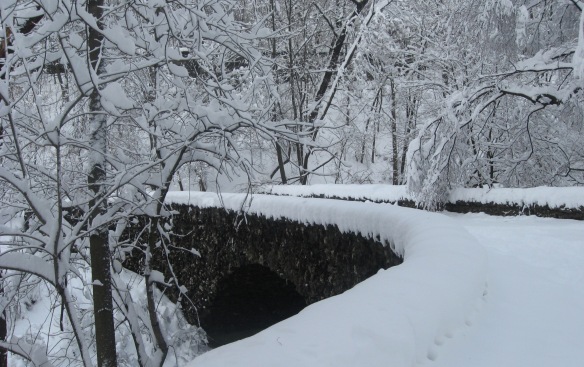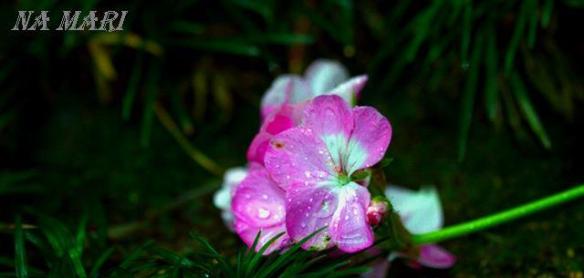Korean Poetry in Translation
A collection of contemporary Korean poetry in translation

In the Field Filling Up with Snow
7
Translated by Chae-Pyong Song and Anne Rashid

In the Field Filling Up with Snow By Seo Jeong-ju
It’s all right,
It’s all right,
It’s all right,
It’s all right–
the snowflakes fall in heaps,
embracing even the sound of baby pheasants and quails
returning to their nests.
It’s all right,
It’s all right,
It’s all right,
It’s all right–
the snowflakes fall like fluffy cotton,
embracing even the sound of young girls with rosy cheeks
returning to their nests.
It embraces even the sound of all the fortunes returning home,
the crying,
the laughing,
the burdened ones
now getting up strongly.
To the big ones, big tear traces,
to the small ones, small laugh lines;
the sound of big stories and small stories
returning home, whispering softly.
It’s all right,
It’s all right,
It’s all right,
It’s all right–
the snowflakes fall constantly,
embracing even the sound of many mountains–
the Blue Mountains* returning home.
*The Blue Mountains: mythical mountains located somewhere in China where a legend says all mountains originate from.
내리는 눈밭 속에서는/서정주
괜, 찬, 타,…
괜, 찬, 타,…
괜, 찬, 타,…
괜, 찬, 타,…
수부룩이 내려오는 눈발속에서는
까투리 매추래기 새끼들도 깃들이어 오는 소리…
괜, 찬, 타,…
괜, 찬, 타,…
괜, 찬, 타,…
포근히 내려오는 눈밭속에서는
낯이 붉은 處女아이들도 깃들이어 오는 소리…
울고
웃고
수구리고
새파라니 얼어서
運命들이 모두다 안끼어 드는 소리…
큰놈에겐 큰눈물자죽, 작은놈에겐 작은 웃음 흔적
큰이얘기 작은이얘기들이 오부록이 도란 그리며 안끼어 오는 소리
괜, 찬, 타,…
괜, 찬, 타,…
괜, 찬, 타,…
괜, 찬, 타,…
끊임없이 내리는 눈발 속에서는
山도 山도 靑山도 안끼어 드는 소리
 Seo Jeong-ju
(1915 – 2000) was born in Gochang, Jeollabuk-do. He is considered the
founding father of modern Korean poetry. Under the pen name Midang, he
published at least 15 collections of poetry. He taught Korean literature
at Chosun University, among others. He was also nominated five times
for the Nobel Prize in literature. His grandmother’s stories and his
interest in Buddhism had a strong influence upon his writing. His works
have been translated into a number of languages, including English,
French, Spanish and German.
Seo Jeong-ju
(1915 – 2000) was born in Gochang, Jeollabuk-do. He is considered the
founding father of modern Korean poetry. Under the pen name Midang, he
published at least 15 collections of poetry. He taught Korean literature
at Chosun University, among others. He was also nominated five times
for the Nobel Prize in literature. His grandmother’s stories and his
interest in Buddhism had a strong influence upon his writing. His works
have been translated into a number of languages, including English,
French, Spanish and German.

In the Field Filling Up with Snow By Seo Jeong-ju
It’s all right,
It’s all right,
It’s all right,
It’s all right–
the snowflakes fall in heaps,
embracing even the sound of baby pheasants and quails
returning to their nests.
It’s all right,
It’s all right,
It’s all right,
It’s all right–
the snowflakes fall like fluffy cotton,
embracing even the sound of young girls with rosy cheeks
returning to their nests.
It embraces even the sound of all the fortunes returning home,
the crying,
the laughing,
the burdened ones
now getting up strongly.
To the big ones, big tear traces,
to the small ones, small laugh lines;
the sound of big stories and small stories
returning home, whispering softly.
It’s all right,
It’s all right,
It’s all right,
It’s all right–
the snowflakes fall constantly,
embracing even the sound of many mountains–
the Blue Mountains* returning home.
*The Blue Mountains: mythical mountains located somewhere in China where a legend says all mountains originate from.
내리는 눈밭 속에서는/서정주
괜, 찬, 타,…
괜, 찬, 타,…
괜, 찬, 타,…
괜, 찬, 타,…
수부룩이 내려오는 눈발속에서는
까투리 매추래기 새끼들도 깃들이어 오는 소리…
괜, 찬, 타,…
괜, 찬, 타,…
괜, 찬, 타,…
포근히 내려오는 눈밭속에서는
낯이 붉은 處女아이들도 깃들이어 오는 소리…
울고
웃고
수구리고
새파라니 얼어서
運命들이 모두다 안끼어 드는 소리…
큰놈에겐 큰눈물자죽, 작은놈에겐 작은 웃음 흔적
큰이얘기 작은이얘기들이 오부록이 도란 그리며 안끼어 오는 소리
괜, 찬, 타,…
괜, 찬, 타,…
괜, 찬, 타,…
괜, 찬, 타,…
끊임없이 내리는 눈발 속에서는
山도 山도 靑山도 안끼어 드는 소리
 Seo Jeong-ju
(1915 – 2000) was born in Gochang, Jeollabuk-do. He is considered the
founding father of modern Korean poetry. Under the pen name Midang, he
published at least 15 collections of poetry. He taught Korean literature
at Chosun University, among others. He was also nominated five times
for the Nobel Prize in literature. His grandmother’s stories and his
interest in Buddhism had a strong influence upon his writing. His works
have been translated into a number of languages, including English,
French, Spanish and German.
Seo Jeong-ju
(1915 – 2000) was born in Gochang, Jeollabuk-do. He is considered the
founding father of modern Korean poetry. Under the pen name Midang, he
published at least 15 collections of poetry. He taught Korean literature
at Chosun University, among others. He was also nominated five times
for the Nobel Prize in literature. His grandmother’s stories and his
interest in Buddhism had a strong influence upon his writing. His works
have been translated into a number of languages, including English,
French, Spanish and German.The Snowy Night by Moon Tae-jun
Translated by Chae-Pyong Song and Anne Rashid
The Snowy Night by Moon Tae-jun
Oh, my lover
who had pure eyes;
oh, the silver scales
that occupied your eyes.
Tonight snow falls.
Oh, my poor lover
who wrapped my neck
with a white towel and washed my face,
a sacred quiet descends
upon the lonely planet.
I close my eyes
to remember the time
your hands washed my face.
눈 내리는 밤/ 문태준
말간 눈을 한
애인이여,
동공에 살던 은빛 비늘이여
오늘은 눈이 내린다
목에 하얀 수건을 둘러놓고 얼굴을 씻겨주던
가난한 애인이여,
외로운 천체에
성스러운 고요가 내린다
나는 눈을 감는다
손길이 나의 얼굴을 다 씻겨주는 시간을
 Moon Tae-jun (1970-) has published four collections of poetry:Chattering Backyard (2000), Bare Foot (2004), Flatfish (2006), and Shadow’s Development (2008)
as well as other essays and commentary. One of the most popular poets
of the younger generation, Moon uses deceptively simple poetic language
with profound lyricism, commenting on the struggle of daily life.
Grounded in Buddhist philosophy, his poems speak with reverence for all
forms of life and emphasize the necessity of emptying oneself. Moon is a
recipient of many prestigious awards, including the Dongseo Literature
Award (2004), the Midang Literature Award (2005), and the Sowol Poetry
Award (2007).
Moon Tae-jun (1970-) has published four collections of poetry:Chattering Backyard (2000), Bare Foot (2004), Flatfish (2006), and Shadow’s Development (2008)
as well as other essays and commentary. One of the most popular poets
of the younger generation, Moon uses deceptively simple poetic language
with profound lyricism, commenting on the struggle of daily life.
Grounded in Buddhist philosophy, his poems speak with reverence for all
forms of life and emphasize the necessity of emptying oneself. Moon is a
recipient of many prestigious awards, including the Dongseo Literature
Award (2004), the Midang Literature Award (2005), and the Sowol Poetry
Award (2007).
The Snowy Night by Moon Tae-jun
Oh, my lover
who had pure eyes;
oh, the silver scales
that occupied your eyes.
Tonight snow falls.
Oh, my poor lover
who wrapped my neck
with a white towel and washed my face,
a sacred quiet descends
upon the lonely planet.
I close my eyes
to remember the time
your hands washed my face.
눈 내리는 밤/ 문태준
말간 눈을 한
애인이여,
동공에 살던 은빛 비늘이여
오늘은 눈이 내린다
목에 하얀 수건을 둘러놓고 얼굴을 씻겨주던
가난한 애인이여,
외로운 천체에
성스러운 고요가 내린다
나는 눈을 감는다
손길이 나의 얼굴을 다 씻겨주는 시간을
 Moon Tae-jun (1970-) has published four collections of poetry:Chattering Backyard (2000), Bare Foot (2004), Flatfish (2006), and Shadow’s Development (2008)
as well as other essays and commentary. One of the most popular poets
of the younger generation, Moon uses deceptively simple poetic language
with profound lyricism, commenting on the struggle of daily life.
Grounded in Buddhist philosophy, his poems speak with reverence for all
forms of life and emphasize the necessity of emptying oneself. Moon is a
recipient of many prestigious awards, including the Dongseo Literature
Award (2004), the Midang Literature Award (2005), and the Sowol Poetry
Award (2007).
Moon Tae-jun (1970-) has published four collections of poetry:Chattering Backyard (2000), Bare Foot (2004), Flatfish (2006), and Shadow’s Development (2008)
as well as other essays and commentary. One of the most popular poets
of the younger generation, Moon uses deceptively simple poetic language
with profound lyricism, commenting on the struggle of daily life.
Grounded in Buddhist philosophy, his poems speak with reverence for all
forms of life and emphasize the necessity of emptying oneself. Moon is a
recipient of many prestigious awards, including the Dongseo Literature
Award (2004), the Midang Literature Award (2005), and the Sowol Poetry
Award (2007).The Word of the Wind by Mah Jonggi
Translated by Chae-Pyong Song and Anne Rashid
The Word of the Wind by Mah Jonggi (1939-)
After all of us leave,
if my spirit passes by you,
don’t think even for a moment it is
the wind that sways the spring boughs.
Today I will plant a flower
on a corner of the shadow
where I got to know you;
when the flower grows to bloom,
all the distress that stemmed from our acquaintance
will turn into petals and fly away.
It will turn into petals and fly away.
Though it is unbearably distant
and futile,
how can we measure all the things in the world
with only a small ruler?
When every now and then you turn your ears toward where the wind blows,
my beloved, don’t forget even if you become tired
the word of the wind that comes from faraway.
바람의 말 /마종기
우리가 모두 떠난 뒤
내 영혼이 당신 옆을 스치면
설마라도 봄 나뭇가지 흔드는
바람이라고 생각지는 마.
나 오늘 그대 알았던
땅 그림자 한 모서리에
꽃나무 하나 심어 놓으려니
그 나무 자라서 꽃 피우면
우리가 알아서 얻은 모든 괴로움이
꽃잎 되어서 날아가 버릴 거야.
꽃잎 되어서 날아가 버린다.
참을 수 없게 아득하고
헛된 일이지만
어쩌면 세상 모든 일을
지척의 자로만 재고 살 건가.
가끔 바람 부는 쪽으로 귀 기울이면
착한 당신, 피곤해져도 잊지 마,
아득하게 멀리서 오는 바람의 말을.
The Word of the Wind by Mah Jonggi (1939-)
After all of us leave,
if my spirit passes by you,
don’t think even for a moment it is
the wind that sways the spring boughs.
Today I will plant a flower
on a corner of the shadow
where I got to know you;
when the flower grows to bloom,
all the distress that stemmed from our acquaintance
will turn into petals and fly away.
It will turn into petals and fly away.
Though it is unbearably distant
and futile,
how can we measure all the things in the world
with only a small ruler?
When every now and then you turn your ears toward where the wind blows,
my beloved, don’t forget even if you become tired
the word of the wind that comes from faraway.
바람의 말 /마종기
우리가 모두 떠난 뒤
내 영혼이 당신 옆을 스치면
설마라도 봄 나뭇가지 흔드는
바람이라고 생각지는 마.
나 오늘 그대 알았던
땅 그림자 한 모서리에
꽃나무 하나 심어 놓으려니
그 나무 자라서 꽃 피우면
우리가 알아서 얻은 모든 괴로움이
꽃잎 되어서 날아가 버릴 거야.
꽃잎 되어서 날아가 버린다.
참을 수 없게 아득하고
헛된 일이지만
어쩌면 세상 모든 일을
지척의 자로만 재고 살 건가.
가끔 바람 부는 쪽으로 귀 기울이면
착한 당신, 피곤해져도 잊지 마,
아득하게 멀리서 오는 바람의 말을.
The Leper by Seo Jung-ju
Translated by Chae-Pyong Song and Anne Rashid
The Leper by Seo Jung-ju (1915-2000)
The sunlight from the sky
filled the leper with sorrows.
He gobbled up a baby
when the moon rose over the barley field.*
All night he cried scarlet cries like flowers.
* There once was a myth in Korea that if lepers ate a baby’s liver, they would be cured.
문둥이/서정주
해와 하늘 빛이
문둥이는 서러워
보리밭에 달 뜨면
애기 하나 먹고
꽃처럼 붉은 우름을 밤새 우렀다
출전: “시인부락” (1936)
 Seo Jeong-ju (1915
– 2000) was born in Gochang, Jeollabuk-do. He is considered the
founding father of modern Korean poetry. Under the pen name Midang, he
published at least 15 collections of poetry. He taught Korean literature
at Chosun University, among others. He was also nominated five times
for the Nobel Prize in literature. His grandmother’s stories and his
interest in Buddhism had a strong influence upon his writing. His works
have been translated into a number of languages, including English,
French, Spanish and German.
Seo Jeong-ju (1915
– 2000) was born in Gochang, Jeollabuk-do. He is considered the
founding father of modern Korean poetry. Under the pen name Midang, he
published at least 15 collections of poetry. He taught Korean literature
at Chosun University, among others. He was also nominated five times
for the Nobel Prize in literature. His grandmother’s stories and his
interest in Buddhism had a strong influence upon his writing. His works
have been translated into a number of languages, including English,
French, Spanish and German.
The Leper by Seo Jung-ju (1915-2000)
The sunlight from the sky
filled the leper with sorrows.
He gobbled up a baby
when the moon rose over the barley field.*
All night he cried scarlet cries like flowers.
* There once was a myth in Korea that if lepers ate a baby’s liver, they would be cured.
문둥이/서정주
해와 하늘 빛이
문둥이는 서러워
보리밭에 달 뜨면
애기 하나 먹고
꽃처럼 붉은 우름을 밤새 우렀다
출전: “시인부락” (1936)
 Seo Jeong-ju (1915
– 2000) was born in Gochang, Jeollabuk-do. He is considered the
founding father of modern Korean poetry. Under the pen name Midang, he
published at least 15 collections of poetry. He taught Korean literature
at Chosun University, among others. He was also nominated five times
for the Nobel Prize in literature. His grandmother’s stories and his
interest in Buddhism had a strong influence upon his writing. His works
have been translated into a number of languages, including English,
French, Spanish and German.
Seo Jeong-ju (1915
– 2000) was born in Gochang, Jeollabuk-do. He is considered the
founding father of modern Korean poetry. Under the pen name Midang, he
published at least 15 collections of poetry. He taught Korean literature
at Chosun University, among others. He was also nominated five times
for the Nobel Prize in literature. His grandmother’s stories and his
interest in Buddhism had a strong influence upon his writing. His works
have been translated into a number of languages, including English,
French, Spanish and German.The Flower by Kim Chun-soo
Translated by Chae-Pyong Song and Anne Rashid
The Flower by Kim Chun-soo (1922-2004)
Before I called her name,
she was nothing
more than a gesture.
When I called her name,
she came to me
and became a flower.
Like I called her name,
will someone please call my name
that suits my light and fragrance?
I, too, long to come to her
and become her flower.
We all long to be something.
You, to me, and I, to you,
long to become a gaze that won’t be forgotten.
꽃/김춘수
내가 그의 이름을 불러 주기 전에는
그는 다만
하나의 몸짓에 지나지 않았다.
내가 그의 이름을 불러 주었을 때
그는 나에게로 와서
꽃이 되었다.
내가 그의 이름을 불러 준 것처럼
나의 이 빛깔과 향기에 알맞은
누가 나의 이름을 불러다오.
그에게로 가서 나도
그의 꽃이 되고 싶다.
우리들은 모두
무엇이 되고 싶다.
너는 나에게 나는 너에게
잊혀지지 않는 하나의 눈짓이 되고 싶다.
출전: “김춘수 시선집” (민음사)
The Flower by Kim Chun-soo (1922-2004)
Before I called her name,
she was nothing
more than a gesture.
When I called her name,
she came to me
and became a flower.
Like I called her name,
will someone please call my name
that suits my light and fragrance?
I, too, long to come to her
and become her flower.
We all long to be something.
You, to me, and I, to you,
long to become a gaze that won’t be forgotten.
꽃/김춘수
내가 그의 이름을 불러 주기 전에는
그는 다만
하나의 몸짓에 지나지 않았다.
내가 그의 이름을 불러 주었을 때
그는 나에게로 와서
꽃이 되었다.
내가 그의 이름을 불러 준 것처럼
나의 이 빛깔과 향기에 알맞은
누가 나의 이름을 불러다오.
그에게로 가서 나도
그의 꽃이 되고 싶다.
우리들은 모두
무엇이 되고 싶다.
너는 나에게 나는 너에게
잊혀지지 않는 하나의 눈짓이 되고 싶다.
출전: “김춘수 시선집” (민음사)
By the Winter River by Ahn Do-hyun
Translated by Chae-Pyong Song and Anne Rashid
By the Winter River by Ahn Do-hyun (1961- )
The river
took pity on the delicate snowflakes,
which jumped down into none other than the river water
and disappeared, melting shapelessly.
So, it tossed and turned,
to change its posture
before the snowflakes hit its water.
Every time it turned, the river water made a fierce sound.
Unknowingly,
the innocent snow fell endlessly,
and the river,
from the night before,
began to form thin ice, starting from its edge,
in order to save the snow with its own body.
겨울 강가에서–안도현
어린 눈발들이, 다른 데도 아니고
강물 속으로 뛰어내리는 것이
그리하여 형체도 없이 녹아 사라지는 것이
강은,
안타까웠던 것이다.
그래서 눈발이 물 위해 닿기 전에
몸을 바꿔 흐르려고
이리저리 자꾸 뒤척였는데
그때마다 세찬 강물 소리가 났던 것이다.
그런 줄도 모르고
계속 철없이 철없이 눈은 내려,
강은,
어젯밤부터
눈을 제 몸으로 받으려고
강의 가장자리부터 살얼음을 깔기 시작한 것이었다.
출전: “그리운 여우” (창비, 1997)
By the Winter River by Ahn Do-hyun (1961- )
The river
took pity on the delicate snowflakes,
which jumped down into none other than the river water
and disappeared, melting shapelessly.
So, it tossed and turned,
to change its posture
before the snowflakes hit its water.
Every time it turned, the river water made a fierce sound.
Unknowingly,
the innocent snow fell endlessly,
and the river,
from the night before,
began to form thin ice, starting from its edge,
in order to save the snow with its own body.
겨울 강가에서–안도현
어린 눈발들이, 다른 데도 아니고
강물 속으로 뛰어내리는 것이
그리하여 형체도 없이 녹아 사라지는 것이
강은,
안타까웠던 것이다.
그래서 눈발이 물 위해 닿기 전에
몸을 바꿔 흐르려고
이리저리 자꾸 뒤척였는데
그때마다 세찬 강물 소리가 났던 것이다.
그런 줄도 모르고
계속 철없이 철없이 눈은 내려,
강은,
어젯밤부터
눈을 제 몸으로 받으려고
강의 가장자리부터 살얼음을 깔기 시작한 것이었다.
출전: “그리운 여우” (창비, 1997)
Winter. Snow. Tree. Forest by Ki Hyung-do
Translated by Chae-Pyong Song and Anne Rashid
Winter. Snow. Tree. Forest by Ki Hyung-do (1960-1989)
The snow
piles up here and there,
without being able to get all the way out of the forest.
“Is it you?
Don’t hurry.”
Thump. He falls down,
hit by a sharp blade.
I return home,
dragging the tree.
As I trim off the twigs,
I listen to the silence of the tree:
“I am here.
Death is unmasked life.
Our lives, our winters are like that, too.”
We kindle fire
toward the pain
that resembles ourselves.
The night in the forest beyond the window
tosses its body for a deeper quiet.
Till I confirm my clean death
I will be absent,
keeping a beautiful distance from whoever sparks a flame,
and warming my heart little by little.
The morning rising in the late winter
is what comes to make the most perfect nature.
Afterward,
against the direction the snow melts and flows
our spring will come.
겨울·눈(雪)·나무·숲/기형도
눈(雪)은
숲을 다 빠져나가지 못하고
여기 저기 쌓여 있다.
“자네인가,
서둘지 말아.”
쿵, 그가 쓰러진다.
날카로운 날(刀)을 받으며.
나는 나무를 끌고
집으로 돌아온다.
홀로 잔가지를 치며
나무의 沈默을 듣는다.
“나는 여기 있다.
죽음이란
假面을 벗은 삶인 것.
우리도, 우리의 겨울도 그와 같은 것.”
우리는
서로 닮은 아픔을 向하여
불을 지피었다.
窓너머 숲 속의 밤은
더욱 깊은 고요를 위하여 몸을 뒤채인다.
내 淸潔한 죽음을 確認할 때까지
나는 不在할 것이다
타오르는 그와 아름다운 距離를 두고
그래, 心臟을 조금씩 덥혀가면서.
늦겨울 태어나는 아침은
가장 完璧한 自然을 만들기 위하여 오는 것.
그 後에
눈 녹아 흐르는 방향을 거슬러
우리의 봄은 다가오고 있는 것이다.
Winter. Snow. Tree. Forest by Ki Hyung-do (1960-1989)
The snow
piles up here and there,
without being able to get all the way out of the forest.
“Is it you?
Don’t hurry.”
Thump. He falls down,
hit by a sharp blade.
I return home,
dragging the tree.
As I trim off the twigs,
I listen to the silence of the tree:
“I am here.
Death is unmasked life.
Our lives, our winters are like that, too.”
We kindle fire
toward the pain
that resembles ourselves.
The night in the forest beyond the window
tosses its body for a deeper quiet.
Till I confirm my clean death
I will be absent,
keeping a beautiful distance from whoever sparks a flame,
and warming my heart little by little.
The morning rising in the late winter
is what comes to make the most perfect nature.
Afterward,
against the direction the snow melts and flows
our spring will come.
겨울·눈(雪)·나무·숲/기형도
눈(雪)은
숲을 다 빠져나가지 못하고
여기 저기 쌓여 있다.
“자네인가,
서둘지 말아.”
쿵, 그가 쓰러진다.
날카로운 날(刀)을 받으며.
나는 나무를 끌고
집으로 돌아온다.
홀로 잔가지를 치며
나무의 沈默을 듣는다.
“나는 여기 있다.
죽음이란
假面을 벗은 삶인 것.
우리도, 우리의 겨울도 그와 같은 것.”
우리는
서로 닮은 아픔을 向하여
불을 지피었다.
窓너머 숲 속의 밤은
더욱 깊은 고요를 위하여 몸을 뒤채인다.
내 淸潔한 죽음을 確認할 때까지
나는 不在할 것이다
타오르는 그와 아름다운 距離를 두고
그래, 心臟을 조금씩 덥혀가면서.
늦겨울 태어나는 아침은
가장 完璧한 自然을 만들기 위하여 오는 것.
그 後에
눈 녹아 흐르는 방향을 거슬러
우리의 봄은 다가오고 있는 것이다.





